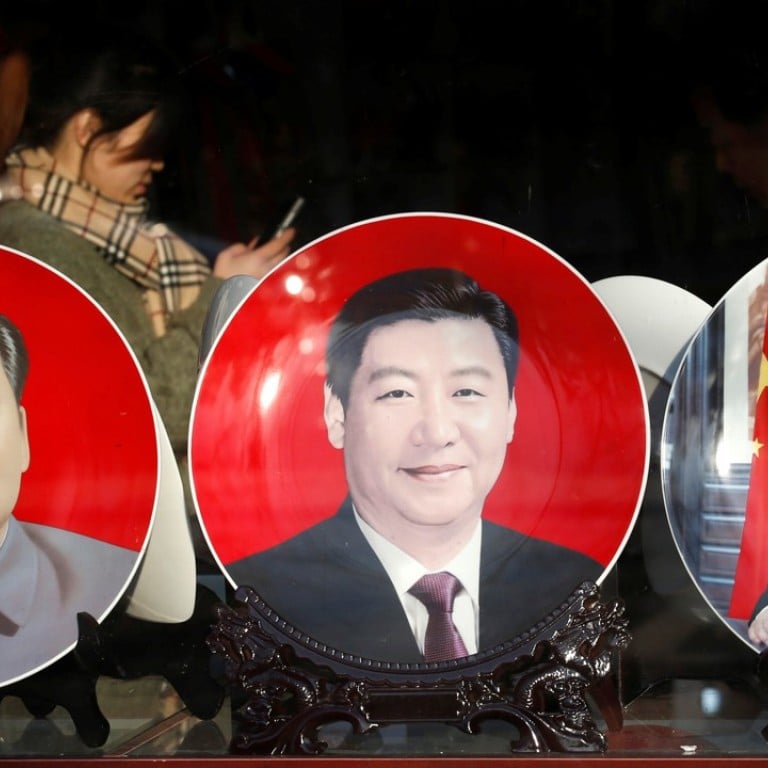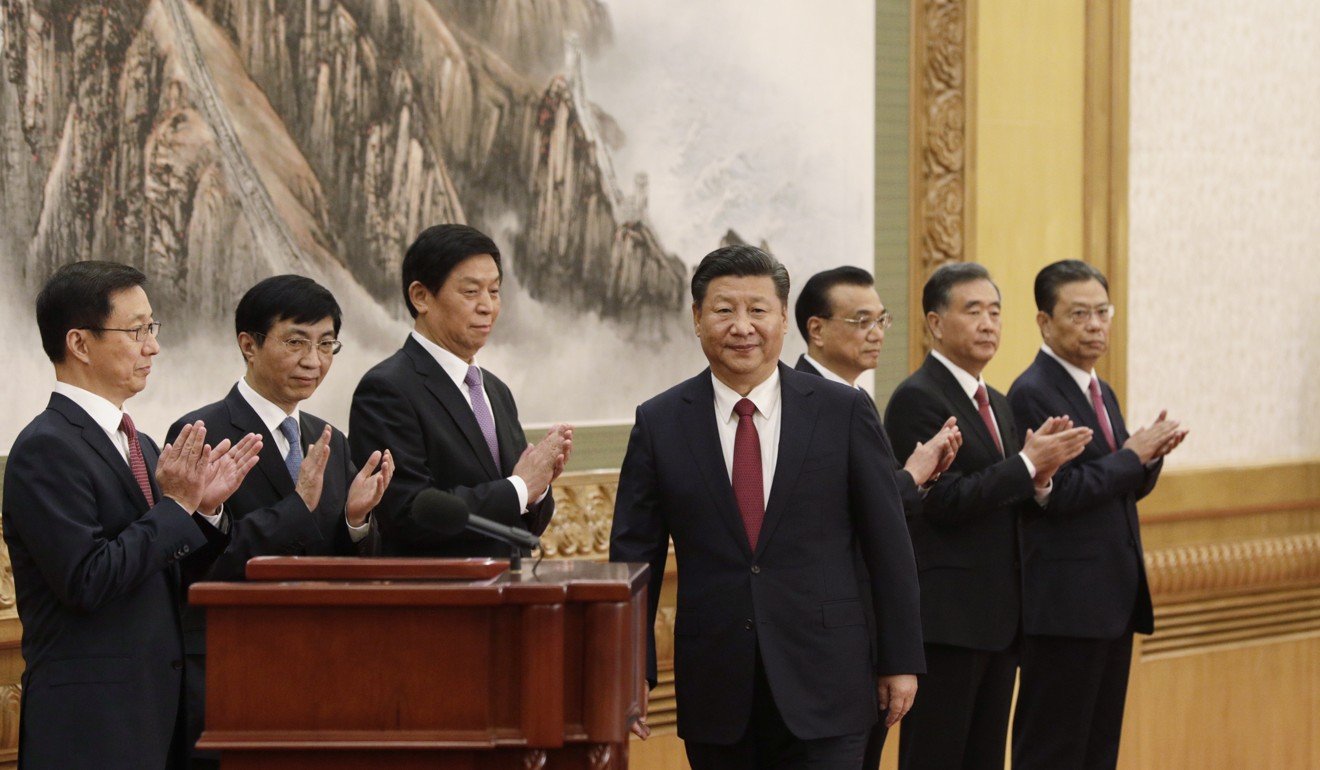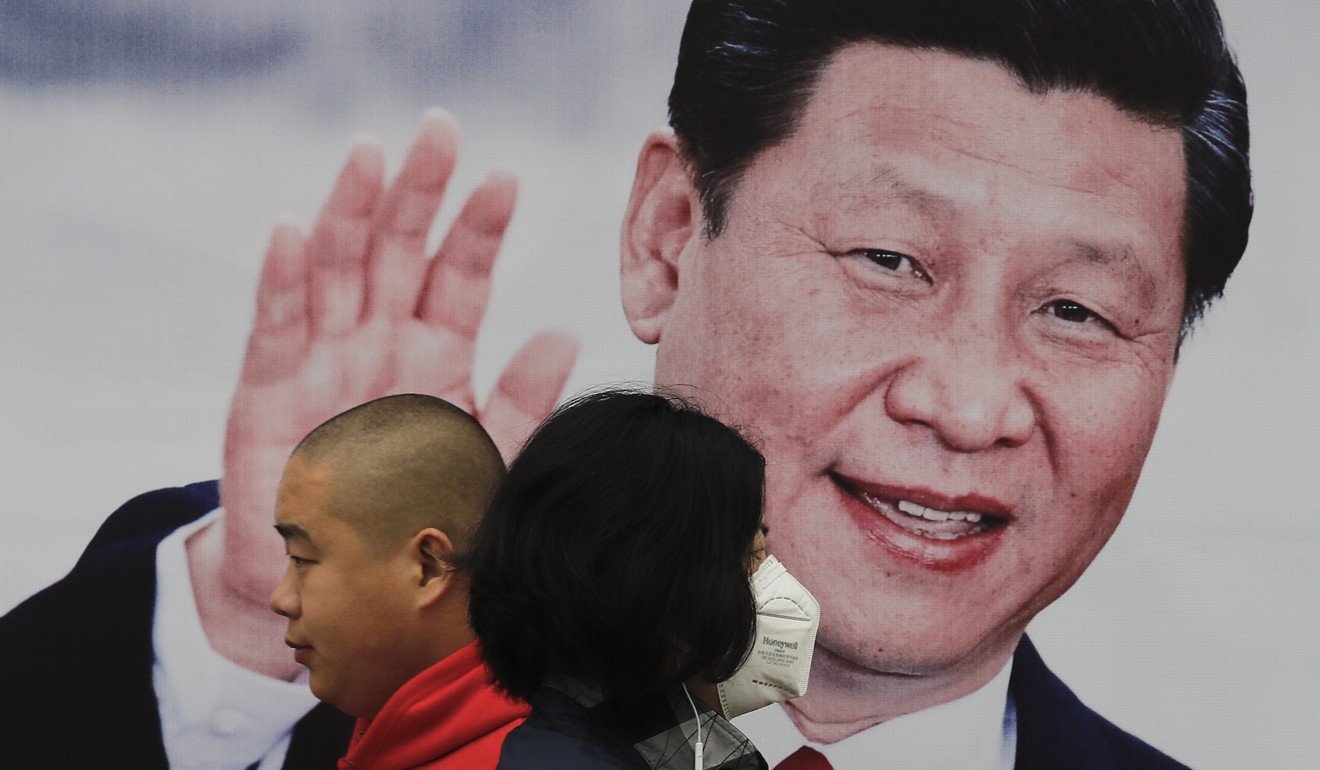
Why China is reviving Mao’s grandiose title for Xi Jinping
Analyst says the honorific ‘lingxiu’ is unlikely to resonate with the public in the way it did half a century ago
President Xi Jinping has been formally recognised as the ruling Communist Party’s lingxiu – a reverential term for “leader” that was only used during the era of chairman Mao Zedong and his successor Hua Guofeng more than three decades ago.
“General Secretary Xi Jinping is the party’s well-deserved lingxiu, supported by the whole party and loved and esteemed by the people,” the Politburo said at its first meeting on Friday since the country’s new leadership line-up was unveiled.
Lingxiu – a more spiritual, grander term for “leader” than the commonly used lingdao – is an honorific bestowed only on “great lingxiu” Mao, the founder of communist China, and his short-lived successor, “wise lingxiu” Hua Guofeng.
What do you call Xi Jinping? China’s elite echo language of Mao to sing the praises of their ‘leader and helmsman’
Even before the decision-making body confirmed Xi’s lingxiu status, more than a dozen political and military leaders had used the grandiose title to refer to Xi during the twice-a-decade party congress that ended on Tuesday. Observers said that reflected a consensus among the party elite to place Xi at a level of authority above all his predecessors but Mao.
In a further sign of Xi’s entrenched authority, Friday’s Politburo meeting also concluded that the “centralised and unified leadership of the Party Central” was the highest principle of the party’s leadership – a departure from recent decades when “collective leadership” and “democratic centralism” were upheld as the top principles.
It means that Xi, who is the “core” of the Party Central, has been officially recognised as the highest authority – and can override others – on the Politburo Standing Committee. Members of the top echelon of power would have had more say in the past under “collective leadership”.

Members of the 25-strong Politburo were also told that they should be the first to safeguard the “centralised and unified leadership” and Xi’s “core” status, and submit a written work report to Xi every year.
The party enshrined Xi’s name along with his political theory in its charter at the close of the congress, meaning any attempt to challenge him or his thinking would now be seen as defiance against the party. Xi is also the only leader after Mao who has seen his eponymous ideology written into the party constitution while in power.
“Now [the party] is taking one step at a time to cement the cult of personality [surrounding Xi],” said Wu Qiang, an independent commentator and former political science lecturer at Tsinghua University in Beijing.
Opinion: Forget Mao Zedong, Xi Jinping is more Charles de Gaulle
Members of the Politburo were also told at the meeting that emphasising Xi’s status as the party’s lingxiu should be a key focus of propaganda work to promote the “spirit” of the congress, which would be the “primary political task” for the party and the country in the months, if not years, to come.
That means Xi is likely to be hailed as the lingxiu at the increasingly frequent study sessions held by party members from government agencies, state-owned companies, schools and other public institutions.
Xi’s political theory – a mouthful of 16 characters laying out 14 densely worded policy principles – is another focus of the propaganda work, Politburo members were told.
It will be studied and memorised by officials, rank-and-file party members and even children, with the education minister saying Xi’s thoughts would “go into the textbooks, the classrooms and the brains [of students]”.

Jeremy Brown, a history professor at Simon Fraser University who specialises in China in the Mao era, said despite the propaganda drive, the eulogising of Xi was unlikely to resonate with the public in the way the cult of Chairman Mao did half a century ago.
“The personality cult [around Xi] is already there and has been building for some time now. But my sense is that it is [merely] background noise for non-officials and nowhere close to how the Mao cult intruded into everyday life during the 1960s,” he said.
Out with the technocrats, in with China’s new breed of politicians
At the high point of the Mao cult at the dawn of the Cultural Revolution, the godlike figure was glorified as the “great lingxiu, great commander-in-chief, great helmsman and great teacher” – a series of honorifics that came to be known as the “four greats”.
Mao portraits were hung in streets and homes, his badges were worn by the Red Guards and leaders, and his quotations – assembled in the famous “Little Red Book” – were memorised by heart even by illiterate farmers.
“Officials and propagandists today feel the need to express loyalty through affirming Xi’s ‘greatness’, but they are only a slice of Chinese society,” Brown said. “For everyone else it’s more like Putin in Russia – a leader who presents himself as strong and indispensable.”

